We offer access to a variety of referrals to alcohol rehab and advice about other UK addiction treatment services.
Rehab 4 Addiction can offer advice about addictions to alcohol, cannabis, heroin, cocaine, amphetamine addiction and prescription drugs in the county of Essex.
We may recommend a range of drug and alcohol rehabs and alternative treatment options, ranging from a 7-day detox, a full 28-day addiction treatment programme and home detox options.
Treatments can include residential alcohol rehab, inpatient detox, home detox or outpatient therapy.
Data collected from the Office of National Statistics [1] tells us there are over half a million problem drinkers living in England.
This is why alcohol rehabs are so vital across the country.
The availability of alcohol and the relaxed laws relating to its sale has not helped the problem.
The rate of drug crimes in Essex and near Essex compared to other counties in the UK is extremely serious, placing it as one of the most badly affected counties in the UK.
Individuals don’t need to drink every night [2] to develop alcoholism and addiction in general can look different to every different person. [3]
If you are living in the non-metropolitan county of Essex and are alcohol dependent, or suffer from an alcohol addiction, then know that help is at hand.
A drug and alcohol rehab facility in Essex can provide a variety of detox and therapy services to help give you proper alcohol rehabilitation support.
Clients come to Essex alcohol rehabilitation centres from all over the UK to receive first-class alcohol or drug addiction treatment & alcohol rehab services with the most positive possible treatment outcomes.
Rehab 4 Addiction in Essex
Address: 745B Southchurch Rd, Southend-on-Sea, Essex, Essex. SS1 2PPTelephone: 01702 892 498
Business hours: Open 24 Hours/7 days a week
Services in Essex: Addiction Treatment, Alcohol Detoxification, Alcohol Rehabilitation, Drug Rehabilitation, Residential Rehab for Addiction, Alcohol Home Deto
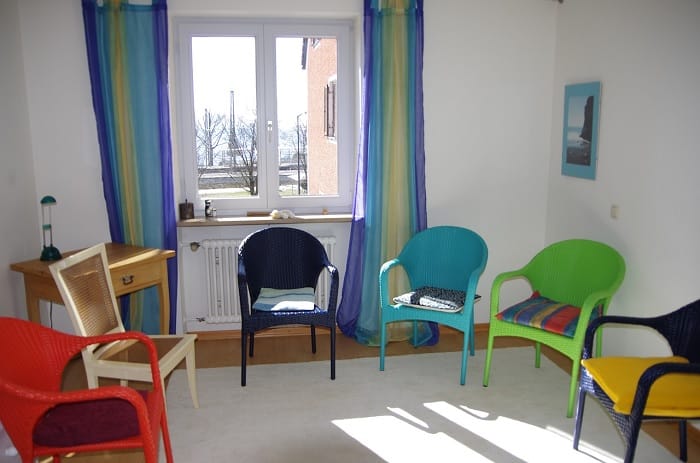
Residential alcohol rehab is a very intense and structured [8] form of treatment designed to help those struggling with addiction overcome their substance abuse.
It is important that you are in the right frame of mind before committing to drug and alcohol rehab treatment as you will be able to benefit from the expert advice and clear structure [9] it can provide for you.
Have you been debating seeking a professional drug or alcohol addiction treatment service for a while but are unsure if you are struggling with addiction or substance misuse issues?
If this sounds familiar to you, take a look at the below list of who a private alcohol rehab centre can help.
To get the best help possible from a drug and alcohol rehab in Essex, give our team a call on 0800 140 4690

There are over 7,000 alcohol-related deaths [12] in the UK each year. When one considers this alongside the significant impact an addiction to alcohol has on life expectancy, [13] then seeking out help becomes a matter of life and death.
It is easy to deny that you have a problem with alcohol or drug abuse. Some struggle for years because they are unwilling to seek out help.
The first step in drug and alcohol recovery is admitting that you have a problem. [14]
Addiction can effect anyone, whatever their age, [15] sex, or background.
If you are in the Essex area and think you may need to undergo alcohol or alcohol rehab treatment, we can help.
Going to an Essex alcohol rehab is one extremely effective way to treat addiction.
There are some great alcohol rehabilitation options in Essex that can help you get clean.
We also provide alcohol rehabilitation treatment in primary care (home) settings.
Below are ten signs that it may be time to go to alcohol rehab in Essex or near Essex.
If some or all of these apply to you, then we are here to help:
The above is adapted from the DSM Criteria for Substance Use Disorders. [17]
For example, someone suffering from a type one alcohol addiction [18] is likely to show signs of high harm avoidance and low novelty seeking, whilst a type two alcoholic [19] will show signs of riskier behaviour and is likely to engage in high novelty seeking.
Below, we list several drug and alcohol rehabs in Essex:
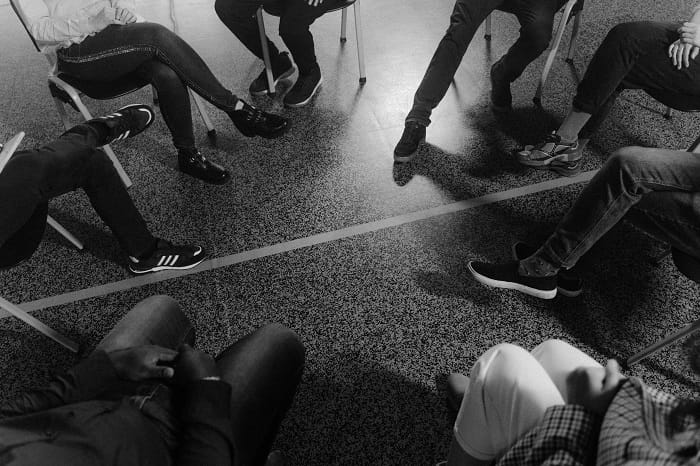
There are two broad types of treatment [23] we typically recommend for substance use disorders in Essex or near Essex.
These consist of detox and alcohol rehab.
Detoxification is solely concerned with the physical withdrawal symptoms occurring when you stop drinking [24] alcohol or using certain drugs.
In contrast, alcohol rehab takes place after detox and it is concerned with the mental aspects of addiction.
Detoxing refers to managed withdrawal. You may experience a variety of withdrawal symptoms. [25]
All the inpatient alcohol and drug rehabilitation services in Essex and near Essex we work with provide round-the-clock medical care.
They will look after you through your alcohol rehabilitation programme.
Once the detoxification process is complete, you may progress with other therapies.
Every addiction patient at an Essex rehab will develop a personalised treatment plan to address their own unique needs.
This means treatment is tailored to their specific needs rather than simply being one of many identical treatment plans.
When you first get to alcohol rehab or other sober living houses, you will undergo a psychiatric assessment. This is so that you can be diagnosed and receive appropriate treatment. A psychiatrist or other medical professional will do this.
You may also need to have a medical detox at alcohol rehab – especially for those going through something with dangerous symptoms such as heroin withdrawal, or for those who have a physical dependence on a substance.
You may be prescribed Librium or Chlordiazepoxide for alcohol withdrawal symptoms, or substances like Acamprosate [26], Naltrexone [27], and anti-anxiety medications like Paroxetine [28] and their alternatives. [29]
Long-term consequences [30] of substance abuse can include hepatitis, Wernicke encephalopathy, [31] alcohol withdrawal syndrome and more.
To find out more about recovering from addiction with the help of a drug and alcohol rehab in Essex, call our expert team on 0800 140 4690

The most important thing to understand when comparing private treatment to that funded by your local authority is that private alcohol rehabilitation can typically be accessible more quickly.
Whilst your local authority can fund places in private alcohol and drug rehab services in Essex for some patients, it is very limited due to government cuts.
You can see a list of local authority-funded alcohol rehab services here.
Below are the pros and cons of both private and local authority funded treatment.
There are many free alcohol rehab and local authority-funded addiction services [33] available throughout Essex, including charities, community detoxification services, Essex specialist treatment and recovery services and NHS addiction treatment services.
Some of the most prominent include:
Address: 9 Coggeshall Rd, Braintree, CM7 9DB
Telephone: 01376 349 237
Website: https://www.forwardtrust.org.uk/service/essex-day-treatment/
Address: 114 Springfield Rd, Chelmsford, CM2 6LF
Telephone: 01245 493 311
Website: http://www.childrenssocietyeast.org.uk/
Address: 13 Southview Rd, Basildon, SS16 4ER
Telephone: 01268 531 435
Website: http://www.openroad.org.uk/
You can find additional help from organisations such as Alateen, Change Grow Live, Turning Point, We Are With You, and Samaritans.
Not only this but you can also reach out to the National Association for Children of Alcoholics, the National Institute for Health and Care Excellence, and submit a self-referral through a local NHS Foundation Trust.
You can also explore AA meetings Essex and NA meetings Essex.
For help choosing between private or public drug and alcohol rehab in Essex, call us on 0800 140 4690

There are many benefits of attending drug and alcohol rehab in Essex and near Essex.
We outline the main benefits below:
If you want to enjoy the many benefits of drug and alcohol rehab in Essex, call our team today on 0800 140 4690

The price of drug and alcohol rehab varies depending upon the centres you select, the amount of time you stay at the alcohol rehab and whether you opt to sleep in a single or multiple occupancy treatment rooms.
Fortunately, there are a range of alcohol rehab options available in Essex.
If you opt for a 10-day detox with a single occupancy room, then prices range from £3,000-£6,000.
Prices for a multi-occupancy room vary from £2,000-£4,000.
If you wish to stay at an alcohol rehab for 28 days, then expect to pay around £8,000-£12,000 for a single occupancy room, or around £6,000 for a multi-occupancy room.
If you wish to undergo a home detox, then you may save money, but you will not be shielded from temptations.
However, home detoxes do work for many people.
Expect to pay around £1,500 for a home detox.
We can inform you of the exact, up-to-date prices of alcohol rehabilitation treatment facilities in Essex.
Although these are considerable sums of money, most alcohol rehabilitation centres will work with you to create a realistic payment plan wth whatever payment options fit you best, whilst many private medical insurance suppliers will cover the cost of addiction treatment.
You’ll have to contact your private insurance directly to see if your plan covers any of the costs associated with addiction treatment.
Call us on 0800 140 4690 to find out how much your stay at a drug & alcohol rehabilitation in Essex will cost

Many people facing addictions are often facing mental health issues at the same time.
Often, these conditions are undiagnosed and even unidentified, but alcohol rehab can help.
When this presents in a patient, it is known as a dual diagnosis situation.
Unfortunately, co-occurring disorders can affect each other.
This means that when mental health issues are left untreated, a substance use disorder can worsen.
Mental health conditions that can be treated alongside alcohol rehabilitation include:
At Rehab 4 Addiction, we want you to understand that you don’t have to feel this way.
A dual diagnosis can be hard to recognise, this is because it is difficult to determine what is a mental health-related problem and what is a substance-related problem.
Take a look at the questions below and try to answer as honestly as possible.
Residential drug and alcohol rehab in Essex can help you access quality addiction treatment for both your addiction and any mental health problems that you may be facing or have been recently diagnosed with.
This is a major benefit to private treatment and can help you heal both physically and psychologically.
You can also find general mental health treatment and support at Rethink Mental Illness, Papyrus, Young Minds, Samaritans and Mind UK.
To learn more about how a drug & alcohol rehabilitation in Essex will support your with appropriate mental health treatment, call us on 0800 140 4690

Treatment [40] starts with an initial pre-admission assessment. This will include a detailed medical check.
For the medical check, bring any medication you are currently taking.
The doctors may prescribe medication to treat withdrawal symptoms.
They will also answer any questions you have about your treatment and the recovery process as a whole.
If you are not in a fit state to drive, the alcohol rehab clinic will provide transport for you.
Once you enter treatment at an alcohol rehabilitation clinic, you will have access to medical care at all times.
During your stay, there will be meetings with therapists and doctors.
They will help you set up a treatment plan with goals and objectives.
After detox is complete, you have the option of further treatment opportunities.
This includes support group work, counselling treatments and therapy.
Begin the admissions process at a drug and alcohol rehab in Essex today by calling us on 0800 140 4690

Here are the main steps involved in the treatment process:
The first step is to contact our team. We will assess you and explain your alcohol rehabilitation options based on your needs and preferences.
The main things they will ask about are:
Our experts will then create a tailored plan for your needs.
Treatment at the drug and alcohol treatment centres we work with usually begins with a medical detoxification.
Medical experts will look after you through any withdrawal symptoms.
They will give you any medication you need to get through this stage.
After the detox, alcohol rehab is there to treat the mental side of addiction.
Alcohol rehab can include both one-to-one and group therapy sessions alongside a wide range of other evidence-based treatment.
Some forms of therapy [41] you may benefit from at alcohol rehab in Essex include:
Detox is said to help you to get clean, whilst alcohol rehab helps you stay clean too.
To learn more about the specifics of attending drug and alcohol rehab in Essex, call our experts on 0800 140 4690

Below is a very loose description of what you can expect from a typical day at alcohol rehab services.
You will start the day with a healthy breakfast. Then you will have a meeting to discuss your progress.
This may include exercises such as meditation.
Around noon, you will eat lunch. Then you begin psychological treatment, with your personalised treatment plan focusing on key recovery treatments such as one-to-one therapy and group therapy sessions.
There may be other therapy sessions too, such as art therapy and 12-step facilitation meetings.
After this, you will have some free time.
After a healthy dinner and any necessary medication, it will be lights out.
Sleep is vital for your body to return to health.
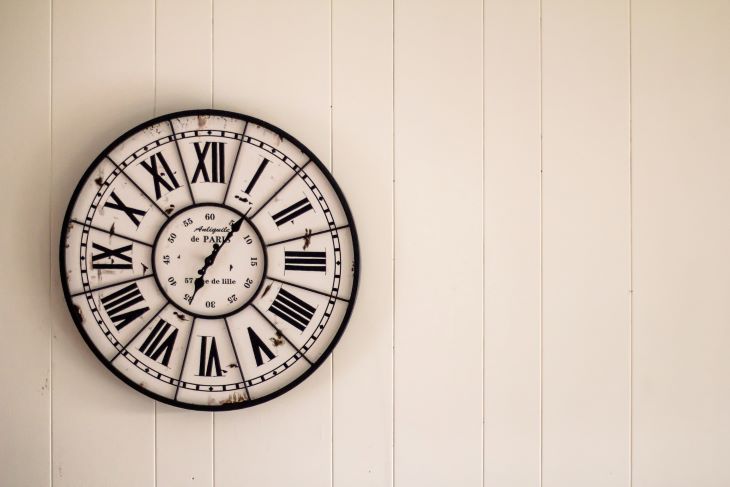
Whilst full drug or alcohol recovery can take anywhere from six months to five years or longer, [49] a formal treatment opportunity at a recovery service will rarely last this long.
Treatment can last anything from 7 and 28 days. The detoxification process can take as little as 7 days.
The most common alcohol rehabilitation programmes in an Essex drug and alcohol treatment centre will last between 14 days and 28 days.
The recommended duration of treatment is to be determined during your assessment.
For advice about how long your treatment opportunity may last at a drug and alcohol rehab in Essex, call our helpline on 0800 140 4690

Detoxing at home may be recommended in certain cases, and the benefits of detox in a primary care (home) setting are well documented. [50]
However, for some, undergoing the detox process at a drug and alcohol rehab in Essex may be recommended.
In the addiction treatment facilities in Essex that we work with, you will receive top-quality addiction treatment.
The detoxification period is a delicate stage for the body. It is trying to get rid of toxins.
The withdrawal symptoms can be highly uncomfortable, but alcohol rehab can help ease them with treatment.
Some of these symptoms include:
Many of these are the result of long-term drug and alcohol abuse [52].
The main advantage of a medically assisted detox process is the level of support you will receive.
For more information about detox services at a drug and alcohol rehab in Essex, call our team on 0800 140 4690

Many clients like the thought of detoxing at home.
It is a significantly cheaper option than addiction inpatient treatment in Essex and can help to avoid moving into alcohol rehabilitation treatment facilities or disrupting your career and family commitments.
However, detoxing at home can present lots of risks to clients as alcohol withdrawals are as equally dangerous as withdrawing from drugs.
At-home alcohol detoxes can be made possible with the help and support of drug and alcohol rehabilitation clinics in Essex.
It typically involves an initial assessment by a psychiatrist and the prescription of anti-withdrawal medication mailed out to you.
At-home detoxes are monitored daily through a telephone call by your psychiatrist.
Detox at alcohol rehab typically lasts for around 10 days and involve the prescription of Librium to help ease withdrawal symptoms.
Librium is the brand name for the generic chlordiazepoxide, a benzodiazepine that is used for its calming effects on anxiety.
It has proven very effective in helping those who withdraw from alcohol during a detox programme.
When consuming alcohol, the neurotransmitters in the brain [53] fail to function correctly.
Librium regulates communication and nervous activity, making an at-home detox more manageable.
For some clients, a stay at a residential rehab can prove useful after a home detox.
For around 3 weeks you can overcome the psychological causes of addiction by partaking in tailored therapy sessions.
At-home detoxes should not be confused with self-detoxes which involve zero medical supervision at all and are not advised by Rehab 4 Addiction.
Keeping a drinking diary and minimising your consumption can help to reduce your intake [54] if you cannot commit to drug and alcohol rehab at this current moment.
However, we urge you to reach out to us if you are wanting to end your addiction.
Unmanaged alcohol withdrawals are very dangerous and can cause a variety of effects on the body and mind such as:
To learn more about detoxing from alcohol at home or with the help of an alcohol rehab in Essex, give our team a call on 0800 140 4690
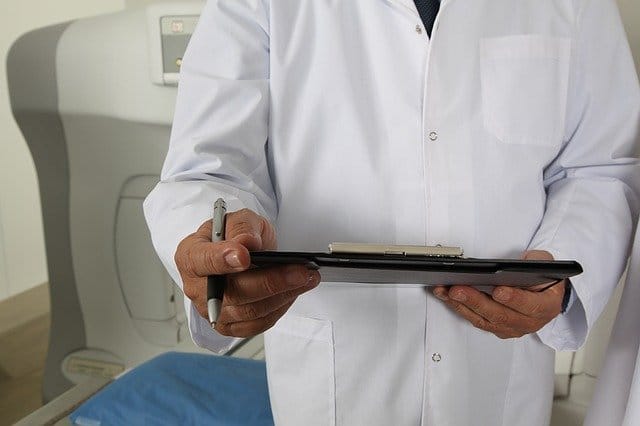
Alcohol rehab can help to treat many substance addictions ranging from cannabis and cocaine to heroin.
Cocaine is a very addictive substance that has detrimental effects on the body and mind.
It increases levels of dopamine in the brain which means users tend to feel depressed if they are unable to consume when needed.
If you are facing a cocaine addiction in Essex, we urge you to reach out for our assistance.
The two most common types of rehabilitation treatment to help cocaine addictions are inpatient rehab and outpatient rehab in Essex.
We believe that addiction inpatient treatment is often the most effective treatment opportunity for those facing a cocaine addiction due to the intensity of care on offer.
Treatment is administered in a residential facility in Essex, meaning clients are free from distractions and triggers at all times.
Outpatient treatment may also be a possibility though it is important to remember that these treatment facilities do not monitor addiction patients as their rehab services are provided on a walk-in basis and so negative associations are much more common.
For those in Essex facing cannabis dependence, it can be more difficult to determine levels of addiction.
It is a psychologically addictive substance meaning there are no physical withdrawals when a user stops consuming, therefore no need for a cannabis detox.
In Essex and the surrounding areas, there are lots of specialist cannabis rehab clinics that take in addiction patients for around 4 weeks.
During this time, you will receive therapy to help treat the underlying causes of your addiction to cannabis and to maintain abstinence from further use.
Heroin, on the other hand, carries a risk of overdose with every single use.
It is a very powerful opiate that quickly causes one-time users to fall into addiction.
At Rehab 4 Addiction, we encourage those with heroin addictions to seek residential treatment at an inpatient rehab in Essex due to the challenges posed by withdrawals.
This isn’t to say that recovery [59] from heroin addiction is impossible, but rather that it requires maintained professional help to overcome.
Choosing a specialist heroin treatment clinic in Essex will be in your best interest and can help you achieve sobriety.
At rehab, you can also be treated whatever your addiction type [60] such as:
Other types of psychiatric treatment options that are available at a rehab facility in Essex include brief intervention, contingency management, coping mechanisms, and person-centred care.
For more information about the various addictions treated at rehabs in Essex, call our team on 0800 140 4690

Whilst a professional alcohol rehab facility in Essex will provide the most effective option for alcohol & drug addiction treatment & rehab, it is not always an option for everyone.
If you cannot commit to rehab at this current moment, some alternatives can prove beneficial such as:
To learn more about the treatment options available in Essex that are beyond simply alcohol rehab, call us today on 0800 140 4690

It can be difficult to tell your employer you are checking into an alcohol rehab facility in Essex.
Here are some useful tips:
For more support in dealing with employers whilst at drug and alcohol rehab in Essex, call our expert team today on 0800 140 4690

Drug and alcohol rehab in Essex is the first step on the road to recovery, but addiction is not a disease that can be truly fixed. [65]
That’s why we offer addiction treatment programmes that include 12 months of free aftercare.
Comprehensive aftercare programmes will be put in place after alcohol rehab to do everything to help you stay clean for the long run.
We encourage those in recovery to go to Alcoholics Anonymous and Narcotics Anonymous meetings in the Essex area.
Relapse is highest in the first few months after alcohol rehab. Between 50%-80% of people relapse during this time, [66] depending upon the severity of the alcohol or drug addiction.
This compares to 65-95% [67] for people who attempt to stop using drugs and alcohol without the support of a formal addiction treatment model.
Being aware of the various relapse triggers [68] that you are likely to encounter is a good chance to ensure continued sobriety.
To help yourself maintain long-term recovery after alcohol rehab and give yourself the best chance of staying sober, [69] you can do the following:
Please call our 24-hour helpline: 0800 140 4690

To learn more about how treatment programmes in Essex may benefit you, contact Rehab 4 Addiction today for immediate admission.
You can contact us on 0800 140 4690 to speak to one of our experts who are eagerly awaiting your call via our 24-hour helpline.
We work with a network of drug and alcohol rehabilitation centres in Essex and across the United Kingdom.
Every drug and alcohol treatment centre we recommend is regulated by the Care Quality Commission [70] (England and Wales) or the Care Inspectorate [71] (Scotland).
We offer a range of treatments to addiction sufferers throughout Essex, including in Colchester, Basildon, Chelmsford, Braintree, Rochford, Harlow, Brentwood, Maldon, Clacton-on-Sea, Canvey Island, Billericay, Rayleigh, Loughton, Witham, Waltham Abbey, Frinton and Walton, Harwich, Saffron Walden and many others.
Start your recovery journey today at alcohol rehab and get the help you need to overcome addiction and get your life back on track.
This article was written by Boris Mackey. You can connect with Boris online at LinkedIn or X.com.
[1] https://www.gov.uk/government/publications/alcohol-dependence-prevalence-in-england
[2] https://addictionrehabtoronto.ca/drinking-bottle-wine-night-make-alcoholic/
[4] https://nida.nih.gov/publications/drugs-brains-behavior-science-addiction/drug-misuse-addiction
[5] https://nida.nih.gov/publications/drugfacts/understanding-drug-use-addiction
[6]https://www.tandfonline.com/doi/full/10.31887/DCNS.2009.11.3/wrenthal
[7] https://onlinelibrary.wiley.com/doi/abs/10.1111/j.1360-0443.2007.01871.x
[9] https://www.ncbi.nlm.nih.gov/pmc/articles/PMC4553654/
[10] https://www.niaaa.nih.gov/alcohol-health/overview-alcohol-consumption/moderate-binge-drinking
[11] https://www.recoveryanswers.org/research-post/recovery-attempts-review/
[13] https://www.ncbi.nlm.nih.gov/pmc/articles/PMC4402015/
[14] https://www.mountsinai.org/health-library/selfcare-instructions/deciding-to-quit-drinking-alcohol
[15] https://www.niaaa.nih.gov/alcohols-effects-health/alcohol-topics/older-adults
[17] https://www.ncbi.nlm.nih.gov/pmc/articles/PMC3767415/
[18/19] https://www.ncbi.nlm.nih.gov/pmc/articles/PMC6876531/
[20]https://www.ahrq.gov/prevention/guidelines/tobacco/5steps.html
[21] https://pubs.niaaa.nih.gov/publications/aa63/aa63.htm
[22] https://web.archive.org/web/20230315051842/https://pubs.niaaa.nih.gov/publications/arh22-1/61-66.pdf
[25] Removed
[26] https://effectivehealthcare.ahrq.gov/products/alcohol-misuse-drug-therapy/consumer
[27] https://www.aafp.org/pubs/afp/issues/2016/0315/p457.html
[26] https://www.ncbi.nlm.nih.gov/pmc/articles/PMC5614930/
[29] https://www.rehab4addiction.co.uk/addiction-treatment/naltrexone-implant
[30] https://www.cdc.gov/alcohol/fact-sheets/alcohol-use.htm
[31] https://premierneurologycenter.com/blog/neurologic-diseases-associated-with-alcohol-consumption/
[34] https://www.nhs.uk/Live-well/addiction-support/drug-addiction-getting-help/
[36] https://www.painscale.com/article/the-4-c-s-of-addiction
[37] https://iv.iiarjournals.org/content/24/5/761
[38] https://www.ncbi.nlm.nih.gov/pmc/articles/PMC6241194/
[39] https://rivierarecovery.com/the-wall-stage-of-recovery/
[42] https://www.ncbi.nlm.nih.gov/books/NBK385382/
[45] https://gpsych.bmj.com/content/32/5/e100087
[46/47] https://pubmed.ncbi.nlm.nih.gov/32954958/
[48] https://www.ncbi.nlm.nih.gov/pmc/articles/PMC3654310/
[49] https://www.niaaa.nih.gov/alcohol-health/overview-alcohol-consumption/moderate-binge-drinking
[50] https://www.racnj.com/the-five-stages-of-addiction-recovery/
[51] https://pubmed.ncbi.nlm.nih.gov/2913493/
[52] https://www.cdc.gov/alcohol/fact-sheets/alcohol-use.htm
[54] https://www.niaaa.nih.gov/publications/alcohol-and-brain-overview
[56] https://www.cdc.gov/alcohol/fact-sheets/womens-health.htm
[57] https://www.cdc.gov/alcohol/fact-sheets/alcohol-use.htm
[59] https://pubs.niaaa.nih.gov/publications/aa22.htm
[60] https://nida.nih.gov/research-topics/recovery
[61] https://www.ncbi.nlm.nih.gov/pmc/articles/PMC5328289/
[62] https://www.nhs.uk/live-well/alcohol-advice/the-risks-of-drinking-too-much/
[64] https://meetings.ukna.org/meeting/Essex
[65] https://meetings.cocaineanonymous.org.uk/meetings/Essex
[66] https://uk.meetings.smartrecovery.org/meetings/?location=Essex&coordinates=50
[67] https://nida.nih.gov/publications/drugs-brains-behavior-science-addiction/treatment-recovery
[68/69] https://www.ncbi.nlm.nih.gov/pmc/articles/PMC1976118/
[70] https://drpeeke.com/2015/02/24/pillars-of-recovery-the-three-ms/
[71] https://www.newdirectionsforwomen.org/what-percentage-of-alcoholics-recover/
[73] https://www.careinspectorate.com/index.php/inspection-reports
 Addiction is often largely misunderstood, with many incorrectly labelling it as a lack of willpower, a moral failing or something that happens after a series of bad choices. When, actually, addiction is much more complex. It can be shaped by a number of things, such as trauma, mental health, the environment you grew up in […] .... Read More
Addiction is often largely misunderstood, with many incorrectly labelling it as a lack of willpower, a moral failing or something that happens after a series of bad choices. When, actually, addiction is much more complex. It can be shaped by a number of things, such as trauma, mental health, the environment you grew up in […] .... Read More
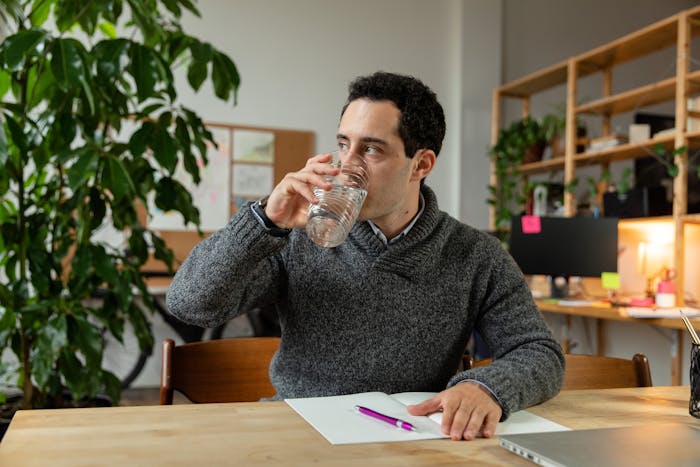 After completing or trying your best for Dry January, it can be tempting to count the days left until you can give it all up and return to drinking. But there are multiple benefits to maintaining your abstinence into February and longer. During Dry January, your liver begins to repair itself, say if you were […] .... Read More
After completing or trying your best for Dry January, it can be tempting to count the days left until you can give it all up and return to drinking. But there are multiple benefits to maintaining your abstinence into February and longer. During Dry January, your liver begins to repair itself, say if you were […] .... Read More